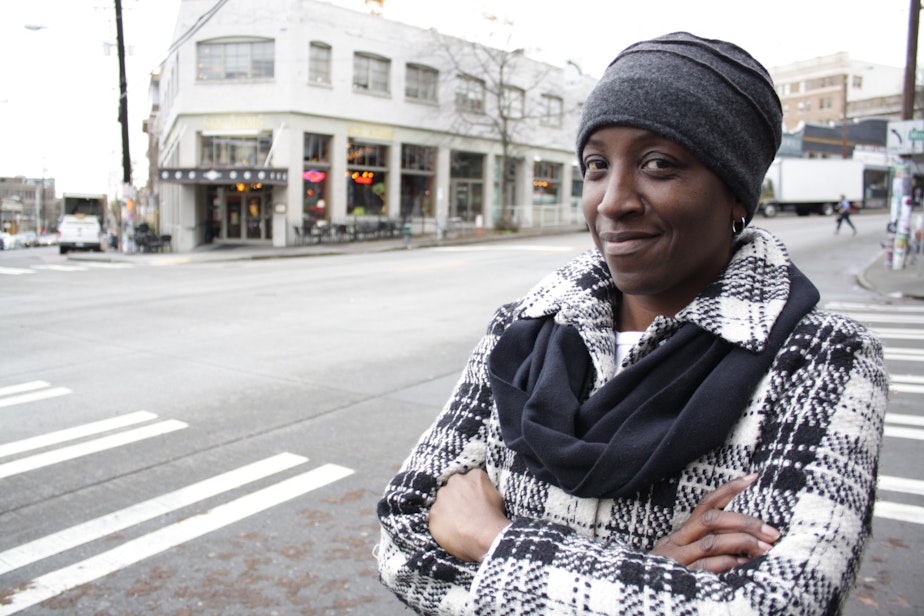Amazon Hires Homeless Workers – And Everyone Ends Up Disappointed

Jackie Williams arrived in Seattle with nothing but a suitcase full of clothes. She had been hired as a certified nurse’s assistant.
“I came here to make money,” she said. That had eluded her back in Dallas, where work was scarce and pay was low.
But her Texas certification didn’t transfer to Washington state, so her employer couldn’t immediately take her on. She found herself jobless and homeless.
She ended up at the YWCA, where Amazon was putting on a job fair. The YWCA connects homeless people with jobs – and they were thrilled that Amazon wanted to hire homeless people. The job fair was promising at first.
“It’s good business to hire people that have experienced homelessness,” said Mike Schwartz, who runs the jobs program at the YWCA. “It’s not that there aren’t challenges, but it’s good business.”
Sponsored
Employers benefit by getting tax breaks and loyal employees. Companies like Microsoft have hired homeless people for years. Tom Douglas Restaurants does it too.
Amazon had been watching the trend but hadn’t done much. But when the company approached the YWCA last fall, it wanted to do something unprecedented: Put on a job fair with just one company – Amazon – to target homeless workers.
Amazon told Schwartz it would offer temporary-to-permanent positions at its distribution warehouses.
“This was a once in a lifetime opportunity,” Schwartz said, “and a chance to create a role model for other employers.”
Holidays approached, and Amazon needed workers in a hurry. The YWCA had a week to pull off the job fair. Schwartz and his coworkers scrambled through preparations that usually take a month or more: Communicating with people who have no fixed address. Coaching them to come up with a 30-second elevator pitch, helping them reframe past hardships as strengths.
Sponsored
“It wasn’t just crazy stressful, it was crazy exciting. Because we’d been wanting to work with Amazon for a long time,” Schwartz said.
But there were problems.
First, the jobs were night shift and swing shift positions. That’s tough if you sleep at a homeless shelter, because most homeless shelters close during the day and have strict curfews that don’t allow people to arrive in the night. Night shift jobs force homeless people to catch their sleep in places like public libraries.
The jobs were seasonal. Schwartz said he was told the jobs could become permanent if the workers performed well. In retrospect, Schwartz said he should have known, based on Amazon’s history of hiring seasonal workers at that time of year. But the miscommunication came at a price.
“If you’re homeless and you get a seasonal job, it may not help you very much in the long term. It may even hurt you,” Schwartz said. “You may have moved into permanent housing thinking that you’ll be able to pay your rent, and then all of a sudden the floor drops out from under you.”
Sponsored
There could be an eviction, which could hurt chances of landing an apartment later.
Jackie Williams said the job fair did more harm than good. She said she and the other women in her shelter felt burned.
“You made them go deeper into depression,” Williams said. “You really hurt someone when you do that. You set them back.”
It’s common for big companies to hire more people than they need – just in case they need them.
“Is it exploitative?” Schwartz said. “Is it merely taking advantage of a body of workers who an employer may think are readily available to start the job and then to be subject to the demands of the employer in terms of the hours, the shift, the workload itself?”
Sponsored
He said it’s normal for companies to face these questions when they first hire homeless workers. But he said what counts is that they keep trying and learning. He wishes he could talk to Amazon, to learn what he could do differently next time. But he said Amazon has been elusive. “They can be hard to get ahold of,” he said.
Amazon wouldn’t talk on tape for this story, but they offered a written statement.
“We have partnered with numerous Seattle-area nonprofits to provide employment opportunities to people who have experienced homelessness. This new program is in its early stages, but we believe it has promise."
As for Williams, she was hired by Swedish Medical Center once her paperwork was sorted out. She has a home now too. She got an apartment through a program she learned about at the YWCA.
“The lady called and said you got approved, and I’m like, ‘Thank you Jesus!’”
Sponsored
That means she’ll have a place to sleep during the day when she’s not working. And a way to pay for it.

